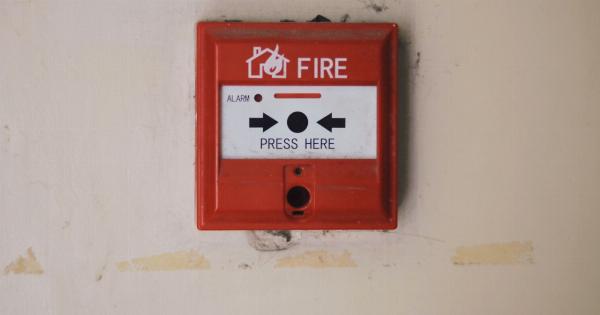Lung cancer is a serious disease that affects millions of people worldwide. It is the leading cause of cancer-related deaths, claiming more lives than breast, colon, and prostate cancers combined.
Early detection and treatment are crucial for better outcomes, as lung cancer often does not cause noticeable symptoms until it has reached an advanced stage. Being aware of the common symptoms associated with lung cancer can help in early detection and prompt medical intervention. Here are eight symptoms of lung cancer that you need to be aware of:.
1. Persistent Cough
A persistent cough that lasts for more than a few weeks can indicate lung cancer. This cough may worsen over time and may be accompanied by coughing up blood or rust-colored phlegm.
If you experience a persistent cough with no apparent cause, it is important to seek medical evaluation to rule out lung cancer.
2. Shortness of Breath
Feeling short of breath or experiencing difficulty in breathing could be a symptom of lung cancer. This symptom often arises as a result of a tumor blocking or narrowing the airways, leading to restricted airflow.
If you find it difficult to catch your breath during regular activities or notice a sudden onset of breathlessness, you should consult a healthcare professional.
3. Chest Pain
Chest pain is a common symptom experienced by individuals with lung cancer. The pain may be sharp, constant, or dull in nature and can be felt in the chest, shoulders, or back. It may worsen during deep breathing, coughing, or laughing.
If you are experiencing persistent chest pain, it is essential to have it evaluated by a healthcare provider to determine its underlying cause.
4. Unexplained Weight Loss
An unintentional and unexplained weight loss is often a red flag for various health conditions, including lung cancer. If you are losing weight without trying or experiencing a significant loss of appetite, it is crucial to investigate the cause.
Unexplained weight loss can be an early sign of lung cancer or indicate the presence of other serious health issues that require medical attention.
5. Fatigue and Weakness
Feeling tired and weak is a common symptom experienced by individuals with lung cancer. Cancerous cells consume a significant amount of energy, leading to fatigue and a prolonged feeling of tiredness.
If you notice a persistent lack of energy or worsening weakness, it is advisable to consult a healthcare professional for further evaluation.
6. Hoarseness or Voice Changes
If you experience persistent hoarseness or notice a change in your voice that lasts for an extended period, it could be a sign of underlying lung cancer.
Tumors can affect the nerves responsible for controlling the vocal cords, leading to hoarseness or a significant change in voice. Consulting a healthcare provider is important to investigate the cause and address any potential issues.
7. Recurrent Respiratory Infections
Frequent respiratory infections, such as bronchitis or pneumonia, could be a symptom of lung cancer.
Tumors growing in the lungs can make them more susceptible to infections by affecting the lung’s ability to clear mucus or impairing the immune system. If you find yourself experiencing recurrent respiratory infections, it is vital to have a thorough medical examination to determine the underlying cause.
8. Bone Pain or Headaches
In advanced stages of lung cancer, the disease may spread to other parts of the body, such as the bones or brain. This can result in bone pain, especially in the back, hips, or chest, and persistent headaches.
If you are experiencing unexplained bone pain or frequent headaches that are not relieved by usual remedies, it is important to discuss these symptoms with a healthcare professional.
It is important to note that the presence of these symptoms does not necessarily mean you have lung cancer, as they can also be indicative of other health conditions.
However, if you experience any of these symptoms, it is crucial to consult a healthcare professional for a proper evaluation. Early detection of lung cancer can significantly improve treatment outcomes and overall prognosis.
Remember, awareness and vigilance are key in maintaining good health. Regular check-ups and screenings are essential, especially if you have a history of smoking or other risk factors associated with lung cancer.
If you notice any of the aforementioned symptoms or have concerns about your lung health, do not hesitate to seek medical advice.
















